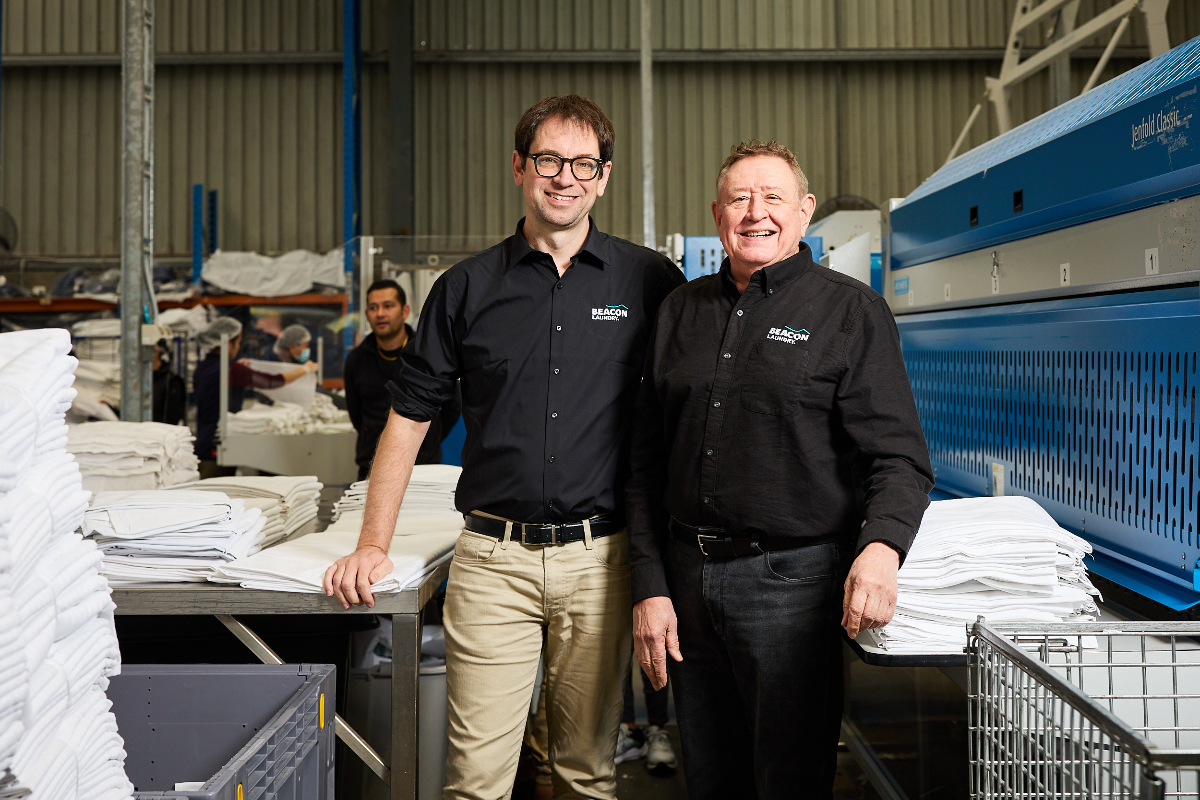White Box Enterprises is the parent company of Beacon Laundry, a jobs-focused commercial laundry aimed at creating local jobs for those facing barriers to entering the workforce.
The new laundry based in Lonsdale hopes to create up to 50 jobs for South Australians, currently operating in a supported employment model with 24 employees who identify with a disability.
The first Beacon Laundry was opened in Bangalow NSW in April 2024, with the company since creating more than 70 jobs, reporting over 80 per cent of employees had previously been shut out of the workforce.
CEO of White Box Enterprises and founder of Beacon Laundry Luke Terry said the company had found “great success” with the model in NSW.
“The Beacon Laundry model focuses on people, purpose, and the planet. Its goal is to create jobs and deliver a scalable approach to open employment which generates incredible returns for individuals, the community and the economy,” Terry said.
Founded in 2019, White Box Enterprises has enabled nearly 800 new jobs, raised $51 million, and launched four large-scale job focussed social enterprises, including Beacon Laundry.
Bedford is Australia’s second-largest employer of people with disabilities, with around 1400 clients at 20 sites in South Australia.
Bedford CEO Myron Mann said the partnership with White Box Enterprises was a “complete transformation of the laundry into a best practice, jobs-focused social enterprise”.
“Bedford will continue to work closely with White Box to drive efficiencies and impact through procurement, logistics and advocacy for Adelaide’s first Beacon Laundry enterprise, which has a strong customer base across aged care, health and hospitality sectors,” Mann said.
White Box Enterprises reported 48 per cent of people with disability at working age are employed, with 6 per cent of refugees finding work six months after arriving in Australia, and more than 40 per cent of young Indigenous people not receiving education, employment or training.
“Jobs-focused social enterprises are essentially businesses for good,” Terry said.
“They primarily exist to create jobs for individuals who face barriers to work. These include people living with a disability, First Nations people, former refugees and those experiencing homelessness and mental health challenges,” he said.

